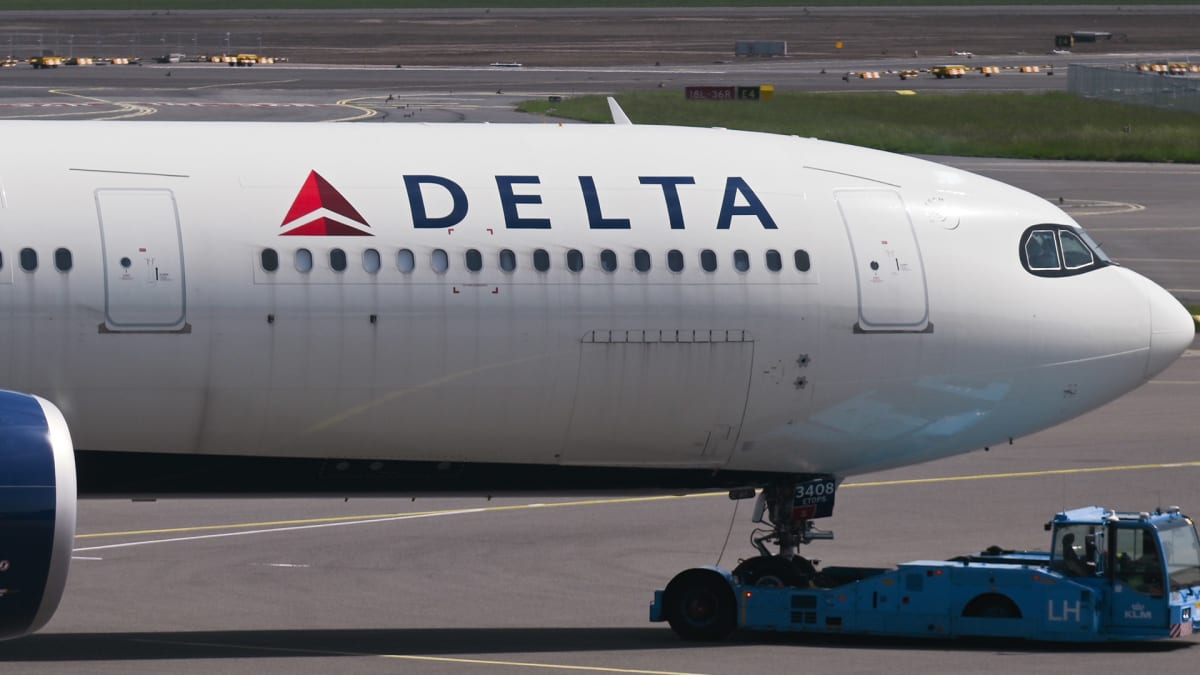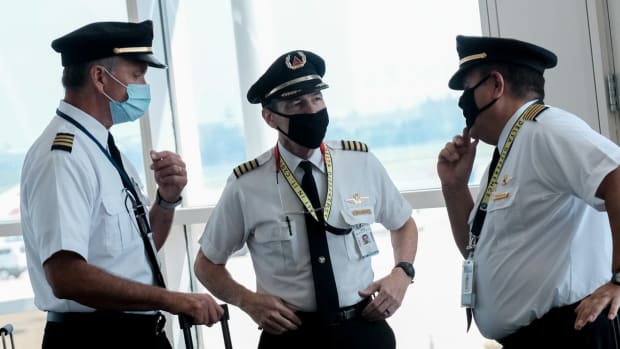
Last year the aviation industry hit a milestone that it would rather not celebrate, as there were record numbers of cancellations and delays.
Even setting aside Southwest’s holiday meltdown, more than 128,934 flights were canceled in the U.S. from January to July alone, according to Travel and Leisure.
Don’t Miss: International Flight From Texas Plummets After Being Struck By Lightning
While climate change-induced weather disruptions and covid-infections played a part, the main problem is that there’s just not enough pilots available at the moment.
During the pandemic, airlines were desperate to cut their costs and remain above water, but because many of them took federal aid, they were prevented from laying off or furloughing any employees. Instead, a number of pilots either retired or took buyouts. Delta (DAL) alone saw about 17,000 employees, or 20% of its workforce leave in this fashion.
Now that demand for flights has rebounded dramatically once vaccines became available, the problem is that there’s not enough pilots to keep up, nor are there enough experienced hands available to train a new generation.
Delta Gives In To The Inevitable
Airlines have been trying to find….let’s say “innovative” ways around its pilot problem.
Many airlines, have been lobbying Congress to amend part 121 of the Federal Aviation Regulations, which is the federal air regulation that requires air carriers to always have two pilots in the cockpit. The proposed change would allow airlines to just have a single pilot, though safety experts insist this would be a very bad and dangerous idea.
It takes a long time to earn a pilot's license, but Southwest (LUV), which previously required prospective pilots to have at least 1,000 hours of experience flying jets and other turbine-powered aircraft before they can get hired, has indicated it is willing to accept 500 hours instead.
Southwest’s new management in particular has been criticized for, critics allege, not investing enough in pilots and employees in order to keep flights running smoothly, and many critics argue that had Southwest tackled these issues, the holiday meltdown could have been avoided. The pilots union spent last year protesting to draw attention to this issue, as they allege that executives have ignored the problem, choosing instead to pay themselves large bonuses and pay shareholders dividends.
But several airlines have begun taking the necessary steps, as United Airlines CEO Scott Kirby recently said he believes that his airline, American, Delta and Southwest will collectively hire about 8,000 pilots this year.
But in order to get new employees, Delta has accepted it will have to raise wages.
Delta pilots approved a new contract that includes 34% raises over four years. The Air Line Pilots Association has said 78% of the Delta pilots who voted supported the contract. Delta currently has about 15,000 pilots.
“From the beginning of the negotiations process, we set out to deliver the industry’s best pilot contract to the industry’s best pilots, one that keeps us as a top destination for U.S. aviation careers, and this contract is a reflection of that unwavering commitment,” Delta operations chief John Laughter said in a news release on Wednesday.
The contract runs through 2026. After that it can be amended — by federal law, union contracts in the airline industry do not expire.

Michael A. McCoy/Getty
Will Other Airlines Follow Delta’s Lead?
It seems that Delta has accepted that there’s one clear way to fix the pilot problem. Matt Liotta, CEO of the private charter Volato, thinks its an encouraging sign.
“Delta’s pay raise indicates the market’s confidence in the growth of the aviation industry.” Volato recently increased compensation for pilots-in-command by twenty thousand dollars and now offers pilots stock options.
But Liotta cautions that the pilot shortage is here to stay. The reality is that large companies such as Delta that can raise pay and benefits will have a financial advantage over smaller companies that cannot.”







